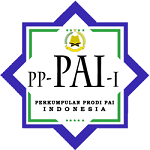Experiential and Spirituality-Based Character Education: A Study of the Thought of John Dewey and Al-Ghazali
Abstract
This research aims to examine and compare in depth the thinking of John Dewey and Al-Ghazali in the context of character education, focusing on the empirical experiential approach according to Dewey and the spiritual-moral approach according to Al-Ghazali. John Dewey, as a leading figure of Western progressive education, developed the concept of experiential learning that placed direct experience and social interaction as the foundation of the formation of students' morals and personalities. Meanwhile, Al-Ghazali emphasized that character education must lead to the purification of the soul (tazkiyat al-nafs) through the application of the values of the Qur'an and Sunnah, as well as the habit of pious deeds. Through a qualitative method with a literature study approach and descriptive-comparative analysis, this study identifies the principles of character education of the two characters, as well as explains the fundamental similarities and differences in their views. The results show that although they differ in philosophical grounds—Dewey is secular-humanist while Al-Ghazali is religious-transcendental—both agree that character education should be holistic, involving the active processes of the individual, the environment, and life experiences. The novelty of this research lies in the systematic integration between two educational paradigms that have been considered opposite. By bringing together Dewey's principle of learning by doing and the concept of tahdzib al-nafs Al-Ghazali, this study offers a new theoretical framework for a balanced model of character education between rational, social, and spiritual aspects. This contribution is important in responding to the challenges of modern education that demand not only intellectual intelligence, but also emotional and moral intelligence.
Keywords
Full Text:
PDFReferences
Alabi, Moses. “Experiential learning: Fostering deep learning through active engagement.” December, 2024..
Al-Azami, Nabeel. Muhammad saw. 11 Leadership Qualities That Changed The World. Elex Media Komputindo, 2024.
Alhaib, Ekhlas, dan Ali Kadhem Alsandi. “The concept of morals and education in imam Al-Ghazali’s thought.” Science 3, no. 1 (2022): 48–55.
Avelar, A. B. A., S. F. Mitchell, dan L. V. Sandes-Guimarães. “Integrating sustainable development goals in management education: Impact on student knowledge, attitudes, and behaviors.” The International Journal of Management Education 23, no. 2 (2025): 101116.
Azizah, Khusnul Nur, dan Zainal Abidin. “The Concept of Islamic Education Based on the Perspective of Imam Al-Ghazali.” Al-Munawwarah: Journal of Islamic Education 1, no. 1 (2025): 48–56.
Chamisah, Chamisah. “Dewey’s Philosophy and Thoughts An analysis of the Compatible Applied on Islamic Education.” Proceedings International Conference: Education, Science, and Technology 1, no. 1 (2024): 289–310. https://jurnal.ar-raniry.ac.id/index.php/estetic/article/view/26536.
Chen, Si. “Enhancing Project-Based Learning in 21st-Century Classrooms: Lessons from Dewey and Kilpatrick’s Progressive Ideas.” The Clearing House: A Journal of Educational Strategies, Issues and Ideas 98, no. 2 (2025): 29–35. https://doi.org/10.1080/00098655.2025.2482196.
Creswell, John W., dan Cheryl N. Poth. Qualitative inquiry and research design: Choosing among five approaches. Sage publications, 2016.
Daroin, A. Sa’dud, Achmad Muhlis, dan Intan Elok Okti Wardani. “ANALYSIS OF DEWEY METHOD IN TRANSFORMATION OF TRADITIONAL AND MODERN EDUCATION.” The Fourth International Conference on Government Education Management and Tourism 4 (2025): 056–056. http://conference.loupiasconference.org/index.php/ICoGEMT-4/article/view/653.
Dewey, John. The essential Dewey, volume 1: pragmatism, education, democracy. Vol. 1. Indiana University Press, 1998.
Erikson, J. P., Lamhot Naibaho, dan Djoys Annkene Rantung. “Memahami peran pendidikan di era post modern melalui pandangan John Dewey.” Jurnal Kolaboratif Sains 6, no. 11 (2023): 1572–78.
Erwin, Jonathan C. The Classroom of Choice: 100+ Strategies to Reach and Teach Every Learner. ASCD, 2024.
Indana, Nurul, dan Ali Mustofa. “The Concept of Islamic Education in the Perspective of Imam Al Ghazali and Its Relevance in the Contemporary Era.” Urwatul Wutsqo: Jurnal Studi Kependidikan Dan Keislaman 13, no. 2 (2024): 242–56.
KOBIA, PRISCA. “DEWEY’S PHILOSOPHY OF EXPERIMENTATION AND TRAINEES ACQUISITION OF PRACTICAL SKILLS IN TECHNICAL TRAINING INSTITUTIONS IN MERU COUNTY, KENYA.” PhD Thesis, 2024. http://41.89.236.15/xmlui/handle/1/4384.
Lubis, MelliFera, H. Hemawati, dan Rahmi Utami. “Relevansi Konsep Pendidikan Agama Islam Al-Ghazali terhadap Pendidikan Islam Kontemporer.” Jurnal Penelitian, Pendidikan Dan Pengajaran: JPPP 3, no. 2 (2022): 154–68.
Mahbubi, M., dan Ali Anhar Syi’bul Huda. “Pendampingan Integrasi Pendidikan Akhlak Berbasis Keteladanan di SMP Nurul Iman Untuk Penguatan Karakter Siswa.” Education, Language, and Arts: Jurnal Pengabdian Kepada Masyarakat 2, no. 2, September (2023): 52–62.
Nurhikmah, Nurhikmah. “Character Education Islam From the Views of Imam Al-Ghazali.” Jurnal Al Burhan 4, no. 1 (2024): 53–66.
Oliveira, Teresa A., dan Mustafa Tevfik Hebebci. “Current Academic Studies in Technology and Education 2024.” ISRES Publishing, 2024. https://www.researchgate.net/profile/Tono-Suwartono/publication/388195622_GenAI-mediated_informal_digital_learning_of_English/links/678ef3bd95e02f182ea828ca/GenAI-mediated-informal-digital-learning-of-English.pdf.
Pham, Kien Thi. “John Dewey’s Educational Philosophy and Experience for Current Vietnamese Education.” Contemporary Pragmatism 21, no. 4 (2024): 399–415.
Pham Thi, Kien. “The Relevance of John Dewey’s Pragmatism for Educational Innovation in Contemporary Vietnam.” Cogent Education 12, no. 1 (2025): 2510055. https://doi.org/10.1080/2331186X.2025.2510055.
Prahastiwi, Eka Danik, Muhtar Efendi, Tobroni Tobroni, dan Joko Widodo. “HAKIKAT MANUSIA: Perspektif Pakar Klasik dan Modern.” Perkumpulan Rumah Cemerlang Indonesia, 2024. https://eprints.umm.ac.id/15575/1/HAKIKAT%20MANUSIA%20.pdf.
Rahmawati, Yulastri. “Peran Pendidikan Sosial dalam Membentuk Karakter Individu.” Jurnal Pendidikan Sosial Indonesia 1, no. 2 (2023): 60–68.
Rukin, S. Pd. Metodologi penelitian kualitatif. Yayasan Ahmar Cendekia Indonesia, 2019.
Rustum, Atiya, dan Zainab Moin. “Moral Training of Youth in the Light of Islam (An Insightful Approach).” AL-DURAR 4, no. 4 (2024). https://www.tcais.net/index.php/aldurar/article/view/243.
Safitri, Diana, Zakaria Zakaria, dan Ashabul Kahfi. “Pendidikan Kecerdasan Spiritual Perspektif Al-Ghazali dan Relevansinya dengan Emotional Spiritual Quotient (ESQ).” Jurnal Tarbawi 6, no. 1 (2023): 78–98.
Shih, Yi-Huang. “Learning for democracy: Some inspiration from John Dewey’s idea of democracy.” Frontiers in Political Science 6 (2024): 1429685.
Swargiary, Khritish. Principles of Education. Google, 2024.
Syaiful, Mohammad, dan Rifqi Khairul Anam. “The Concept Of Moral Education According To Imam Al Ghazali And Relevance To Education In Indonesia.” At-Tajdid: Jurnal Pendidikan dan Pemikiran Islam 8, no. 2 (2024): 601–15.
Wati, Rohmah, Aceng Hasani, Lukman Nulhakim, dan Ima Maisaroh. “Filsafat Pendidikan dalam Relasi Ganda: Analisis dan Sintesis.” Innovative: Journal Of Social Science Research 4, no. 6 (2024): 1807–19.DOI: https://doi.org/10.24952/fahmina.v2i2.15376
Refbacks
- There are currently no refbacks.
Copyright (c) 2025 Zacky Al-Ghofir El-Muhtadi Rizal, Dian Selfiana, Sabilul Najah, Nabila Salsa Hidayah, Isna Farahsya

This work is licensed under a Creative Commons Attribution-ShareAlike 4.0 International License.
Index By
Editorial Office:
Pascasarjana UIN Syekh Ali Hasan Ahmad Addary Padangsidimpuan; Jl. T. Rizal Nurdin Km. 4,5 Sihitang 22733 Padangsidimpuan, North Sumatera, Indonesian.Phone: (+62) 634 22080 Faximili: (+62) 634 24022 email: fahmina@uinsyahada.ac.id

This work is licensed under a Creative Commons Attribution-ShareAlike 4.0 International License.











